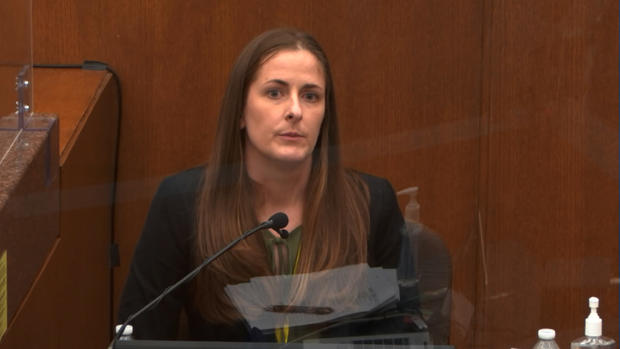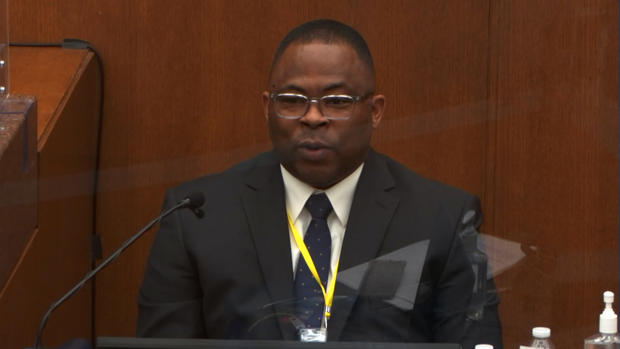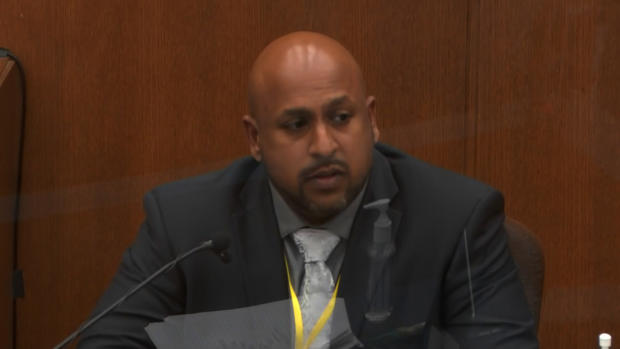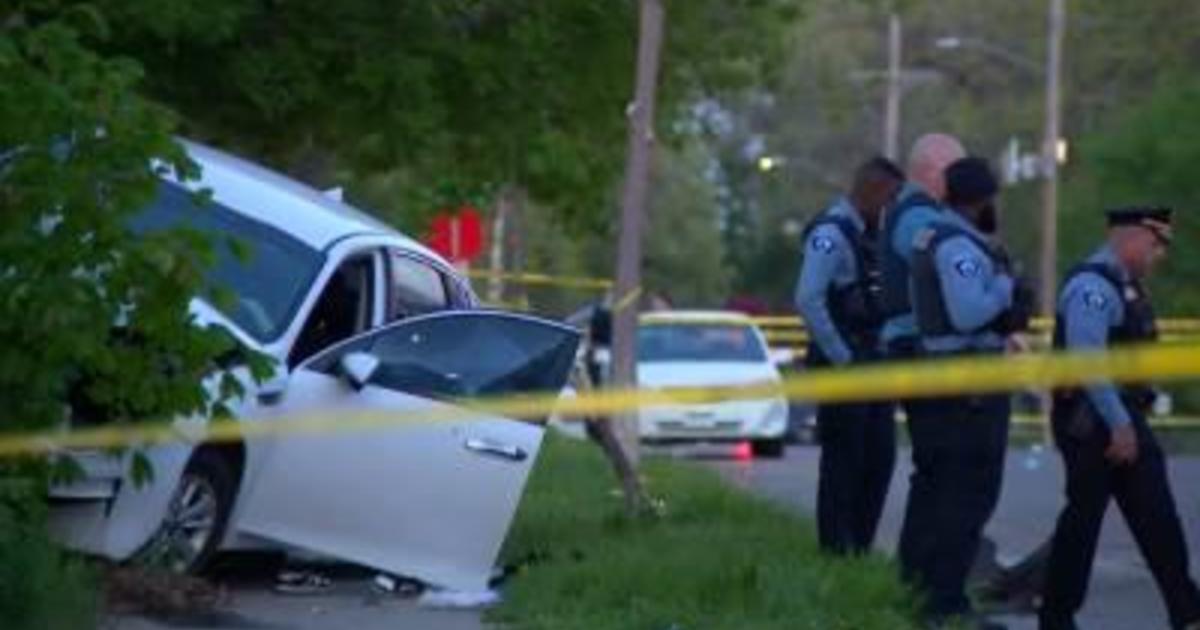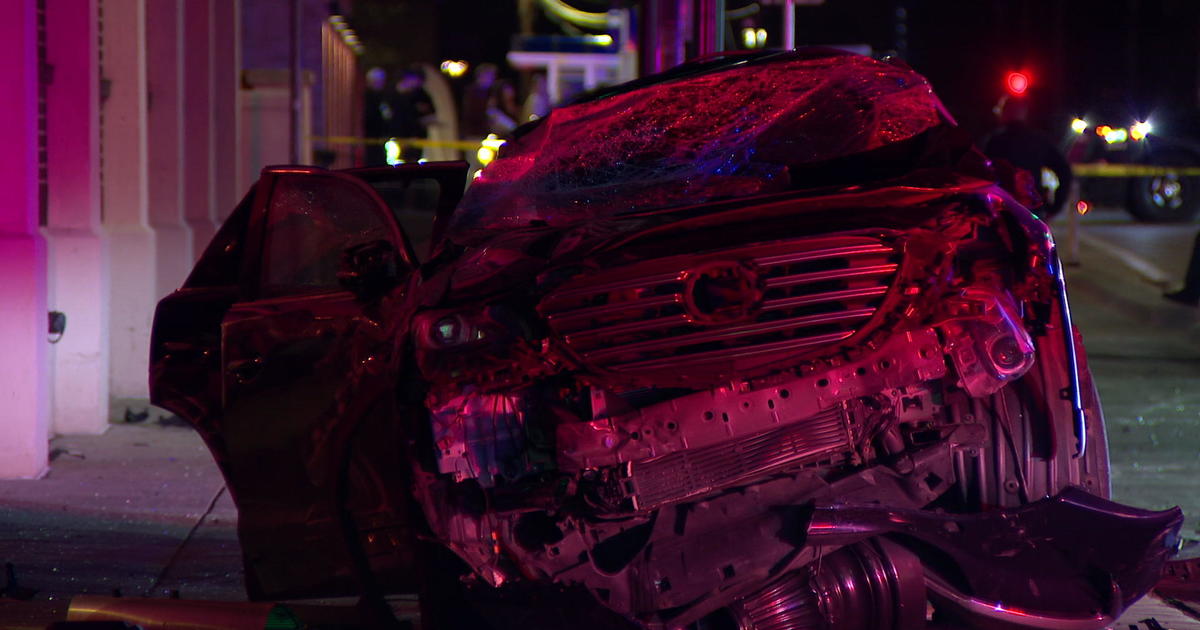Derek Chauvin Trial, April 7: Forensic Scientist Addresses Why She Didn't Initially Test Pills Found In Squad
MINNEAPOLIS (WCCO) -- Crime scene investigators took the stand Wednesday in the Derek Chauvin trial to talk about the evidence they've analyzed.
At the center of testimony: Pills. Forensic scientist McKenzie Anderson described what they found inside George Floyd's SUV and the police cruiser back in May of 2020. She pointed out why she initially missed seeing a white pill in the back seat, which is seen in photos from the first processing.
"At the time I didn't give it any forensic significance," Anderson said. "The focus of it was processing the blood in the back seat."
The pill, and other pill fragments, were recovered in January only after the defense asked for re-examination of the squad car. DNA testing found Floyd's saliva on the largest pill. Pills were also found in the Mercedes SUV Floyd was driving before his deadly encounter with officers.
Other forensic scientists told the court the pills contained methamphetamine, with less than 1% fentanyl.
Earlier in the day, we heard more from a use-of-force expert followed by the lead investigator for the BCA. The defense pushed back hard on key prosecution witnesses, even getting one law enforcement officer to initially say he believed that Floyd can be heard on one of the body cameras saying he consumed too many drugs.
Los Angeles Police Department Sgt. Jody Stiger, the prosecution's paid expert on police force, testified that Chauvin used deadly force on Floyd
"At the time of the restraint period, Mr. Floyd was not resisting. He was in the prone position, he was handcuffed, he was not attempting to evade, he was not attempting to resist, and the pressure … that was being caused by the body weight would cause positional asphyxia, which could cause death," Stiger said.
As Chauvin took detailed notes, defense attorney Eric Nelson pushed back.
"You would agree that from the time Officer Chauvin gets on scene, and to the time Mr. Floyd is prone on the ground, Mr. Floyd was actively resisting efforts to go into the back seat of the squad car," Nelson said.
"Yes sir," Stiger said.
Nelson suggested that Floyd may have initially lied about his inability to breathe.
"When Mr. Floyd was initially saying that he couldn't breathe, he was actively resisting arrest," Nelson said.
"Initially when he was in the back seat of the vehicle, yes," Stiger said.
Nelson cited some of the profanity-laced crowd comments witnesses made to the officers.
"When someone starts threatening you … it's a possibility that an officer can view that as a potential deadly assault is about to happen. That's what they're trained?" Nelson said.
"Yes, that's what they're trained," Stiger said.
The defense played a short clip for Stiger, who said he could not make out what Floyd was saying in it. Nelson played the same video for the next witness, BCA Agent James Reyerson, and got a different answer.
"Did you hear that?" Nelson said.
"Yes I did," Reyerson said.
"Did it appear that Mr. Floyd said, 'I ate too many drugs'?" Nelson said.
"Yes it did," Reyerson said.
But the prosecution then played a longer clip, and Agent Reyerson changed his testimony, saying Floyd actually said just the opposite.
"I believe Mr. Floyd was saying, 'I ain't do no drugs,'" Reyerson said.
And that is a big point the defense is going to continue to argue: the medical evidence and toxicology reports we are going to be hearing in coming days shows Mr. Floyd died from preexisting medical conditions and a drug overdose, and not because of Chauvin's knee, as the prosecution argues.
